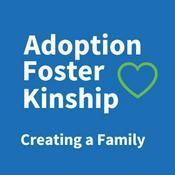Click here to send us a topic idea or question for Weekend Wisdom.
Is the idea of attachment parenting new to you and your family? Or could you use a refresher on what secure attachment is and why it matters? Listen to this conversation with Samantha Farris, LMSW, from the Karyn Purvis Institute of Child Development. She's helping us understand the basics of building secure attachment between parent and child to strengthen our families.
In this episode, we talk about:
How would you describe attachment in the simplest, most hopeful way for a caregiver who’s new to the idea of parent/child attachment? Or who may feel overwhelmed by what they’ve heard and are unsure where to start or start over?
Can you walk us through an overview of the attachment cycle and how it typically develops in infancy and early childhood?
What are some everyday signs caregivers would see that indicate a secure attachment is developing? (even if it’s not “perfect”)
Why does attachment matter so much — not just in childhood, but across a person’s lifespan?
What happens in the brain or nervous system when a child feels securely connected versus chronically disconnected?
How does adding the practice of being “trauma-informed” change a parent or caregiver’s approach to forging that connection with their adopted or foster child?
What are the types of experiences or stressors that kids in our (adoptive, foster, relative caregiving) community may interrupt the natural flow of attachment development?
What are the different attachment profiles or styles, in addition to secure attachment?
What are three common signs that a child might be struggling with attachment?
How might attachment challenges show up differently in toddlers vs school-age children vs. teens?
When a child comes with a history of instability, what helps establish a sense of safety and a foundation of trust?
What are three things newly adoptive or foster parents can do to nurture attachment in the early days of meeting or welcoming a child home?
When a child needs professional help for attachment challenges, what kinds of therapy or supports have you seen be most healing?
If a parent feels disconnected, what are two things they can do starting today to begin building attachment?
What is one piece of advice you’d give to a brand-new parent or caregiver who has never had to think intentionally about forming attachment before listening to this?
Support the show
Please leave us a rating or review. This podcast is produced by www.CreatingaFamily.org. We are a national non-profit with the mission to strengthen and inspire adoptive, foster & kinship parents and the professionals who support them.
Creating a Family brings you the following trauma-informed, expert-based content:
Weekly podcasts
Weekly articles/blog posts
Resource pages on all aspects of family building



